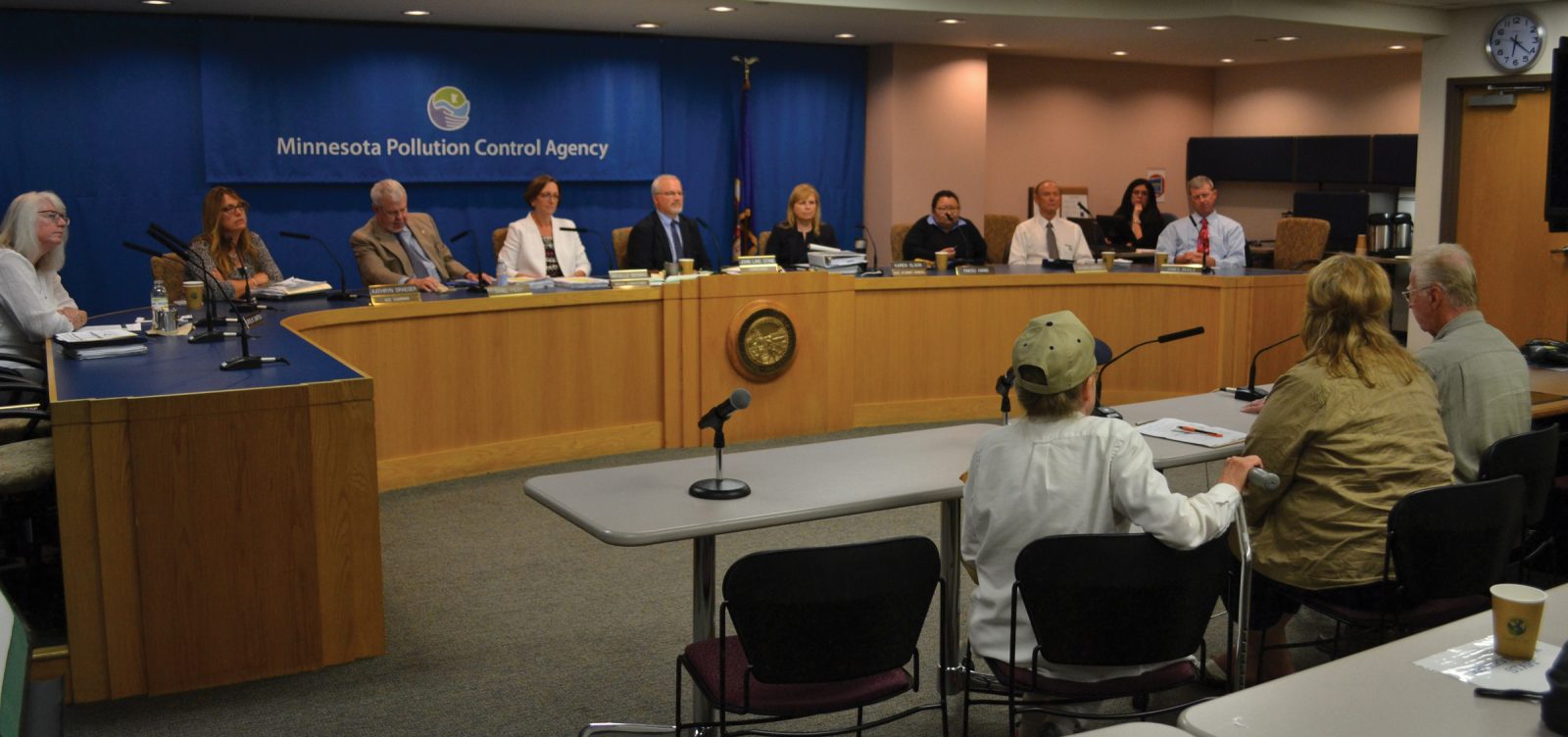SAINT PAUL, Minn. — A bill to reinstate a key body for allowing Minnesota residents to have a say in the future of their communities’ environmental health will be considered during a legislative hearing on Thursday, March 9. The Senate State and Local Government and Elections Committee will consider the reinstatement of the Minnesota Pollution Control Agency’s (MPCA) Citizens’ Board, beginning at 12:30 p.m., in Room 1100 of the Minnesota Senate Building in Saint Paul.
In a highly controversial move, during the final hours of the 2015 Minnesota legislative session the 48-year-old MPCA Citizens’ Board was abolished without a single hearing. The Board’s elimination was prompted when its members ordered an Environmental Impact Statement be done on a proposal that would have expanded the state’s largest factory dairy operation. Land Stewardship Project (LSP) member Jim Riddle, a farmer from Winona, Minn., who was a member of the Citizens’ Board when it was eliminated, plans to testify on March 9 to let legislators know that rural people want the Board back.
“The MPCA Board is critical to having accountability in our government,” said Riddle. “The Board created a space for democracy in action — where every voice can be heard, in full daylight, to protect Minnesota’s environment and ensure our laws and regulations are being followed.”
The MPCA Citizens’ Board was established when the MPCA was created in 1967. Made up of eight members of the general public and the MPCA Commissioner, the Board had legal authority to make final decisions on environmental review and permitting of industrial projects, including factory farms. The Board had the power to overturn agency decisions and it made its decisions in a public forum where citizens were welcome to testify.
Legislation to reinstate the Board was introduced earlier this session by Rep. Kristi Pursell (DFL-Northfield), who is the vice chair of the House Agriculture Finance and Policy Committee, and Sen. Foung Hawj (DFL-St. Paul), who is the chair of the Senate Environment, Climate and Legacy Committee. The bills are House File 2076 and Senate File 1937. House File 2076 has 20 co-authors and Senate File 1937 has three co-authors, including Sen. Erin Murphy (DFL – St. Paul), who is the chair of the Senate State and Local Government and Elections Committee, and Sen. Aric Putnam (DFL – St. Cloud), the chair of the Agriculture, Rural Development, and Broadband Committee.
Also making the trip March 9 to testify in support of the reinstatement bill is LSP member and livestock farmer Beth Slocum of Welch, Minn. As a local farmer, Slocum joined her neighbors in Goodhue County to organize and protect their community from a conglomerate of factory hog operations in their community that was seeking to expand. In 2017, Slocum and her neighbors conducted a five-week study monitoring hydrogen sulfide emissions at the property boundaries of six livestock facilities in Goodhue County. The results showed that the operators were likely exceeding health risk values set by the Minnesota Department of Health at four of the facilities. Following the study, then MPCA Commissioner John Linc Stine committed to both short- and long-term monitoring of some of the facilities. However, a permit was issued for the expansion and no continuous monitoring took place.
“Since the abolishment of the MPCA Board, there is no avenue for checks and balances on agency decisions, the public lacks opportunities to meaningfully make our voices heard and agency decisions have become increasingly opaque and undemocratic,” said Slocum. “By reinstating the MPCA Citizens’ Board, communities like ours will have recourse when the agency isn’t serving us well.”
The reinstatement legislation would also require that Board membership include an enrolled member of a Tribal nation, a small-scale farmer, a member of a labor union and three members who are Black, brown, Indigenous, or low-income and live in an “environmental justice community.” An “environmental justice community” is a neighborhood, composed predominantly of persons of color or a substantial proportion of persons below the poverty line, that is subjected to a disproportionate burden of environmental hazards and/or experiences a significantly reduced quality of life relative to surrounding or comparative communities. The MPCA estimates that 50%-60% of projects permitted by the agency are located in environmental justice communities. The legislation would also require that the board, in reviewing projects, consider whether there has been free prior and informed consent via government-to-government consultation with Tribal Nations.
“Communities that bear a disproportionate amount of environmental, health and economic impacts by industrial projects deserve to have a real place at the table,” said Nazir Khan of the Environmental Justice Table. “Reinstating the Board will ensure the MPCA is prioritizing Minnesotans, rather than corporate polluters.”
The effort to reinstate the MPCA Citizens’ Board is supported by more than 50 agricultural, environmental, faith, labor and social justice organizations from rural, urban and suburban communities in Minnesota.
-30-
